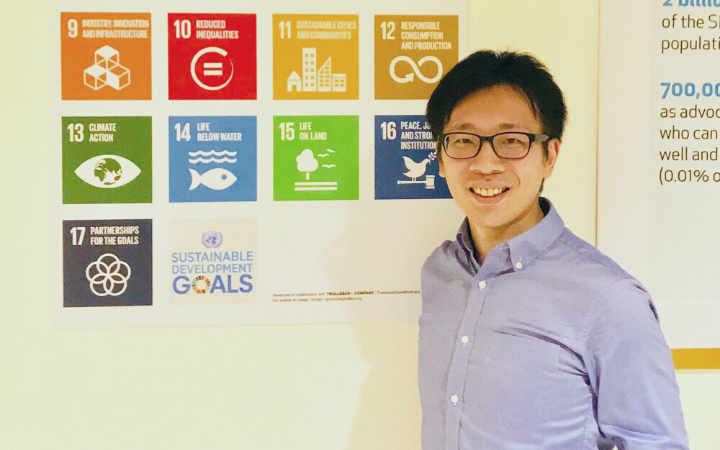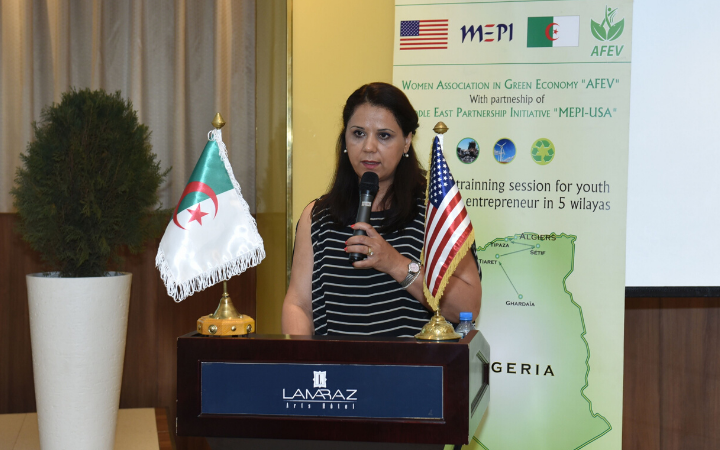The Impact Story Initiative aims to spotlight how our learners have applied new knowledge and skills following the delivery of training. Contrary to testimonials or success stories, impact stories can show the positive and not-so-positive elements as well as the intended and unintended results from what we do. By using a variety of quantitative and qualitative methods, these stories are an evaluative tool to find the impact of our training, examining whether individual, organizational or even wider change has taken place. We want to hear from you. What is your Impact Story? Download the Impact Story Flyer or contact evaluation@unitar.org.
Displaying 31 - 40 of 45
The programme’s coaching component has helped those selected as coaches to enhance their hard skills and improve their soft skills, which they can sometimes implement in their workplaces.
The UNITAR Iraq Entrepreneurship and Leadership Youth Training Programme is a fellowship initiative that provides youth with skills in entrepreneurship and leadership to develop or strengthen local businesses that contribute to social and economic stability in their country. In this Impact Story, we review the extent to which participants have applied or transferred knowledge and skills from the programme and the challenges encountered by them and spotlight the experiences from three participants.
Natallia noted that more and more officials and experts in the field are completing FAO-UNITAR courses, which is also conducive for the promotion of new ideas at the national level.
“When you are equipped with knowledge you don’t remain the same. You talk with confidence because you have really learned, and know it is clearer and you talk based on evidence and at the point of knowledge”.
"We were stranded in the school, unable to move anywhere because the streets were submerged, and many people lost their lives. It is caused by Coral abstraction and cutting mangroves, but climate change is making the problem even worse".
In fact, sharing ideas with people with different professional backgrounds, beliefs, and from over ten different places of origin was one of Udeaku’s main learnings and had impacted her professional and personal life.
During the course, we talked often amongst the other participants of the ELPE. Before the ELPE, I didn’t think about SDG evaluation. Gradually, with my colleagues in the class we exchanged our knowledge and opinions. It was very effective to talk with the other colleagues from all over [the world]. We shared knowledge, and I was inspired, so I decided to start the SDG evaluation in Japan. They are also working on the SDG evaluation in their [respective] countries.
The Partnership for Action on Green Economy (PAGE) is a joint mechanism between five UN agencies, of which the United Nations Institute for Training and Research (UNITAR) is one. Hosted and led by the United Nations Environment Programme (UNEP), PAGE aims to help Member States embark on a greener and more inclusive growth trajectory by putting sustainability at the heart of economic policies and practices to advance the 2030 Agenda for Sustainable Development.
Pollutant Release and Transfer Registers (PRTRs) are effective tools for the collection and dissemination of data on emissions and transfers of a determined list of chemicals. The availability of this information can help policy-makers to identify the source of chemical pollution in the country to make informed decisions on how to best remediate degraded environments and enact policies related to the sound management of chemicals.
Maksim is a young researcher at Moscow State University in Russia with a thirst for knowledge. He is also professionally active in a non-profit agricultural organization. The subject matter of the FAO-UNITAR course seemed an interesting addition to his research, and previous positive experiences with FAO training convinced him to apply.











